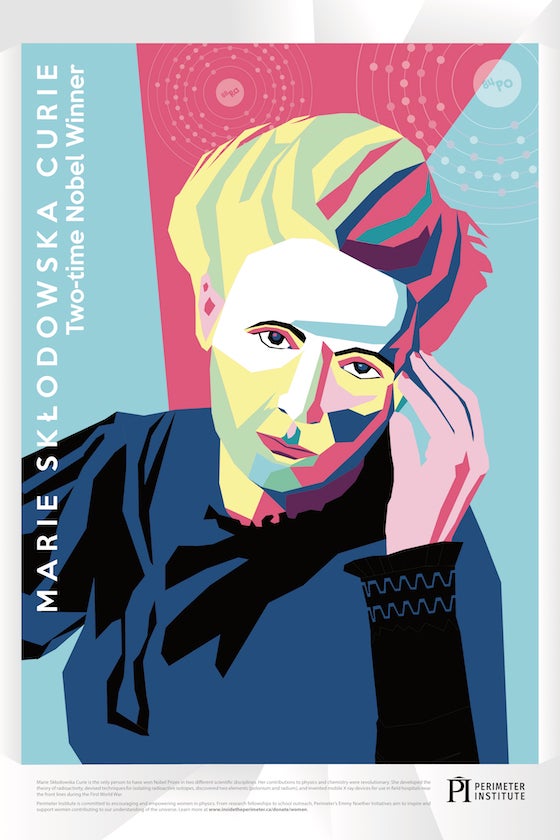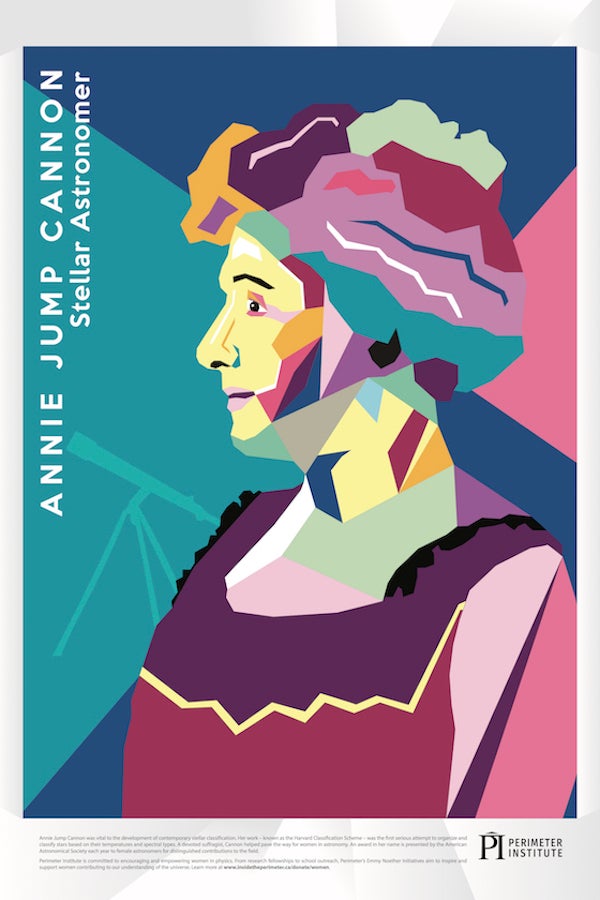This article was published in Scientific American’s former blog network and reflects the views of the author, not necessarily those of Scientific American
Editor's note: This post, which originally appeared in December, 2017, announced a contest by the Perimeter Institute for Theoretical Physics, to expand on its poster series on under-appreciated women in science. The three new members of this growing group of honorees are the astronomer Vera Rubin, an astronomer who pioneered the study of dark matter; Claudia Alexander, a planetary scientist who played crucial roles on the Galileo and Rosetta missions; and Vivienne Malone-Mays, one of the first African-American women to earn a PhD in mathematics.
Last fall, the Perimeter Institute for Theoretical Physics issued five posters featuring five great women who changed science, but whose pivotal roles have long been underplayed in favor of their much more famous male counterparts.

Credit: Gabriela Secara Perimeter Institute
On supporting science journalism
If you're enjoying this article, consider supporting our award-winning journalism by subscribing. By purchasing a subscription you are helping to ensure the future of impactful stories about the discoveries and ideas shaping our world today.
The response was so great—according to Perimeter, the free posters have been downloaded and displayed by schools and other institutions, and shared widely—that the Institute is going to issue a second series, to be released in time for International Women's Day on March 8.

Credit: Liz Goheen Perimeter Institute
The good news is that you can cast your vote for who should be honored this time around, Here's the list of contenders, as described by Perimeter
Vera Rubin was a legendary astronomer and physicist who uncovered the galaxy rotation problem, the strongest evidence yet for dark matter. This discovery has driven physics theory and experiment for more than 40 years.
Maryam Mirzakhani was a brilliant mathematician and a winner of the prestigious Fields Medal. Her work on geometric and dynamic complexities of curved surfaces opened new paths of research in theoretical physics, engineering, material science, pure math, and cryptography.
Claudia Alexander was a specialist in geophysics and planetary science, the last project manager of NASA’s Galileo mission to Jupiter, and served as project manager and scientist for NASA’s role in the European-led Rosetta mission.
Lise Meitner was a pioneer in the fields of radioactivity and nuclear physics. Her work helped discover and build a working understanding of nuclear fission, which led to a Nobel Prize for Otto Hahn. Albert Einstein glowingly referred to her as the “German Marie Curie.”
Vivienne Lucille Malone-Mayes was one of the first African-American women to earn a PhD in mathematics who, despite facing persistent racism, went on to have a long and distinguished research career. An active participant in the civil rights movement, Malone-Mayes fought racism and sexism throughout her career.
Cecilia Payne-Gaposchkin was an innovative astronomer whose career included studies of stellar composition, the structure of the Milky Way, and the study of more than 3 million variable stars. Her work helped bring female astronomers into the mainstream, and her PhD thesis was once called “the most brilliant ever written in astronomy.”
Henrietta Swan Leavitt was an astronomer who received little recognition in her lifetime, but forever changed our understanding of the universe. It was Leavitt’s work that allowed astronomers to measure the distance between the Earth and faraway galaxies, and made Edwin Hubble’s work on the expanding universe possible.
.jpg?w=600)
Credit: Gabriela Secara Perimeter Institute
My own favorite is Vera Rubin—but don't let that sway you!

Credit: Liz Goheen Perimeter Institute
The polls are open until January 10. Vote today!
.jpg?w=600)
Credit: Gabriela Secara Perimeter Institute